Saturday, August 21, 2021
THE CONSTRAINED EQUATION
Most of us, for one reason or another, want to know “what comes next”. There are many wrong ways of going about this. We can, for instance, take our expectations for the future ‘on trust’ from others, or we can simply assume (meaning hope) that the future will be what we want it to be.
The only effective way of forming rational expectations, though, is to follow a ‘path of reason’ from “what we know” (about the present) to “what we want to know” (about the future).
The original plan here was to try to encompass this within a single discussion. Practicality, though, suggests that we tackle this in two or three stages.
This first instalment starts with “what we know”.
This turns out to be rather a lot.
We know, for example, that the economy is an energy system. This knowledge identifies an equation which expresses the conversion of energy into material prosperity.
We know, further, that this is a constrained equation. The constraints on our conversion of energy into prosperity are set (a) by the physical characteristics of energy resources, and (b) by the limits of environmental tolerance.
This knowledge enables us to clear the ground by dismissing the fallacy of the infinite. Infinite growth isn’t feasible on a finite planet and within a finite ecosphere.
Racine man 'belligerent' over masks charged
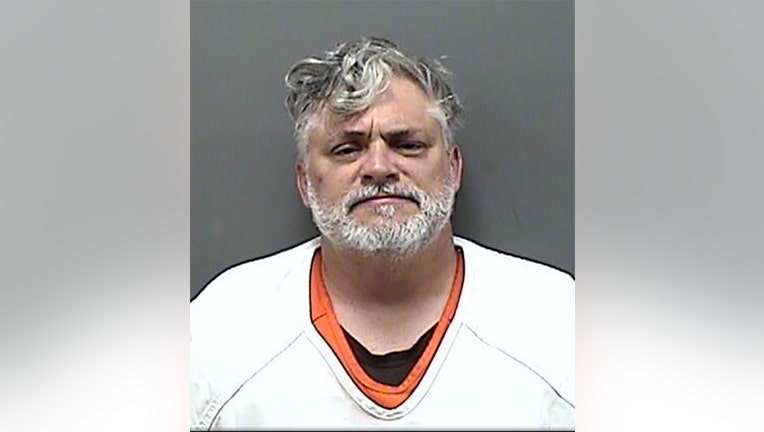 |
| Charles Haeuser |
RACINE, Wis. - A 51-year-old Racine man is charged after he allegedly became "belligerent" that kids had to wear masks due to COVID-19 – later resisting arrest on Aug. 17.
Police were called to a home in Caledonia. The caller said the man was "acting out of control" and was "screaming at the top of his lungs."
According to a criminal complaint, police arrived and the man – since identified as Charles Haeuser – walked outside and toward police in an "aggressive manner." As the incident progressed and police told Haeuser to put his hands behind is back, he said "you're not cuffing me" and "I'm not going to comply."
At one point, an officer told Haeuser, who was not complying with orders, that he would deploy his taser. At that time, the complaint states, Haeuser began screaming, "Neighborhood, help" and started walking toward a residence. Haeuser was tased, and as he was ordered to stop resisting, he yelled at the officer – calling him "a (expletive) piece of (expletive)."
The complaint states the caller told police that Haeuser had been acting "out of control" for months and had "lost his mind over COVID and the vaccine." The caller said Haeuser had threatened to sue and assault people over requiring kids to wear masks.
Haeuser is charged with resisting an officer and disorderly conduct. He made an initial court appearance on Aug. 18. A status conference in the case is scheduled for Oct. 19.
From: https://www.fox6now.com/news/racine-covid-masks-kids-complaint
TSA intercepts gun at Mitchell International Airport; 3rd in 9 days
MILWAUKEE - Transportation Security Administration officers prevented another handgun from making its way onboard an airplane at Milwaukee Mitchell International Airport Thursday, Aug. 19. It is the third gun stopped at the airport in just nine days.
During the routine screening of carry-on luggage, a TSA officer spotted the image of a handgun on the X-ray screen. The incident occurred around 9 p.m., and TSA officials immediately alerted the Milwaukee County Sheriff’s Office. The firearm was loaded with 17 rounds, one chambered. The traveler, a West Allis resident, had a concealed carry permit. A deputy responded to the checkpoint, escorted the passenger to the airport sheriff’s substation and issued a citation.
The TSA is reminding travelers that this is a serious offense. TSA may impose civil penalties of up to $13,910 per violation per person. A typical first offense for carrying a loaded handgun into a checkpoint is $4,100. If a traveler with a gun is a member of TSA PreCheck®, that individual will lose their TSA PreCheck privileges for a period of time.

Guns recovered by TSA at Milwaukee Mitchell International Airport
Fifteen firearms have been detected at MKE this year. As a comparison, 16 firearms were detected at MKE security checkpoints in 2019, and 10 last year.
"We’re seeing an increase in all sorts of prohibited items; oversized liquids, sometimes Swiss Army knives and things like that, so I definitely think it’s possible that people have not traveled in a while and have forgotten the TSA etiquette," said Jessica Mayle. "No one wants to be handling a loaded gun in a crowd of people in an airport."
The number of guns stopped just this year is alarming.
"This is our 15th gun catch of the year for Milwaukee," said Mayle. "In 2019, which is a better comparison because 2020 had so many fewer travelers, 2019, we had 16 for the entire year."
TSA officials say more than 80% of guns found at checkpoints nationwide are loaded. They don't believe there's malicious intent, but rather, that these incidents are costly mistakes.

Firearms confiscated by TSA at Milwaukee Mitchell International Airport
"Overwhelmingly, people say, ‘Oh, I forgot I had it in my bag,’" said Mayle. "Like, that is nearly every time."
Again, passengers could face severe penalties, including fines up to several thousand dollars and criminal charges.
"We don’t think there’s malicious intent there," said Mayle. "However, it doesn’t matter. The results are the same."
Passengers are permitted to travel with firearms in checked baggage if they are unloaded, packed separately from ammunition in a locked hardback case and declared at the airline check-in counter. Firearm possession laws vary by state and locality.
From: https://www.fox6now.com/news/tsa-intercepts-gun-at-mitchell-international-airport-3rd-in-9-days
COVID tests for Wisconsin Afghan refugees, vaccine not required
MADISON, Wis. - Some Afghan refugees could soon be living at Fort McCoy between Sparta and Tomah outside La Crosse. Pentagon spokesman John Kirby said right now, the Wisconsin base is prepared to house a couple thousand refugees, but they're getting ready for even more and also worrying about the coronavirus pandemic.
FOX6 News has learned the refugees will be tested for COVID-19, but right now, they won't be required to get the vaccine.
A U.S. Health and Human Services representative issued this statement:
"The health and wellbeing of Americans and all other people relocating from Afghanistan to the U.S. is of utmost importance and that means helping these individuals leave the country as quickly and safely as possible. We are following CDC guidelines and testing all U.S. citizens and individuals upon arrival. We are also working with USG partners to ensure CDC guidelines are followed if someone receives a positive COVID-19 test, including quarantining if needed."
The U.S. military is building to house up to 22,000 Afghan refugees between three U.S. bases: Fort McCoy, Fort Lee in Virginia and Fort Bliss in Texas.

Fort McCoy, Wisconsin
"The capacity at those three bases, we want to get up to 22,000 capacity," said Kirby. "We’re not there yet. Understandable, but we’re building out to that. Right now, we think we can get up to 22,000 in relatively short order here over the next coming days and weeks."
It won’t be the Wisconsin fort's first time housing refugees. In 1980, the U.S. processed 14,000 Cubans.
"What’s happening at Fort McCoy behind the fences, you have a city, basically, a city that shows up within days, appears within days and people working around the clock, 24 hours a day, running this city," said Jarrod Roll, director/county historian at the Monroe County Local History Room and Museum.
Roll said the refugees created a temporary surge for the struggling 1980 economy.
"The state of the American economy was rather down, and unemployment was high, so when the refugees came to Fort McCoy, there was an instant demand for workers out there," said Roll. "Anyone from cleanup crew to the cooks, lots of kitchen help needed."
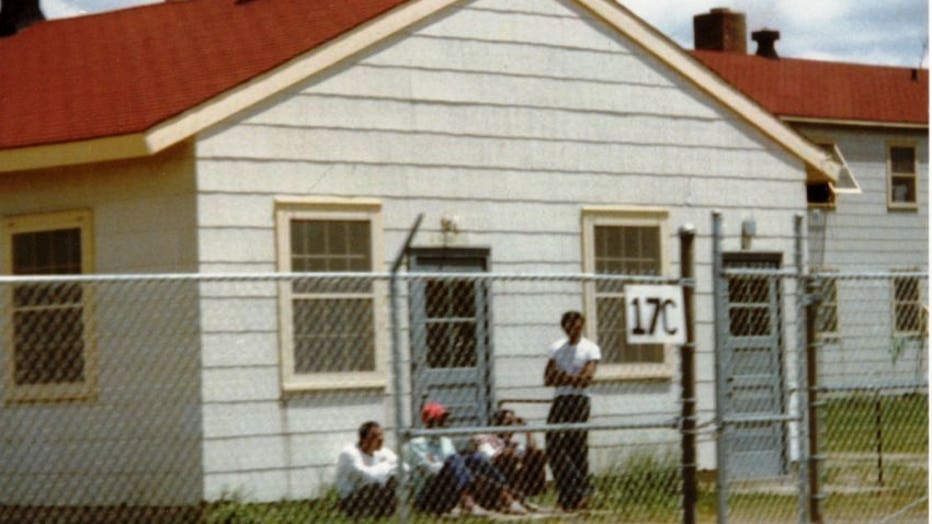
Monroe County Local History Room & Museum
It's something that will again be seen in western Wisconsin.
"We have a commitment to those who truly helped the United States government during our 20 years in Afghanistan," said U.S. Rep. Bryan Steil (R-Wisconsin). "We have to make sure that those individuals are provided free safety and free passage out of Afghanistan. What we can’t allow is anybody who can grab onto an airplane to come into the United States without vetting. That cannot be allowed."
Steil told FOX6 News he is worried about Americans trapped in Afghanistan.
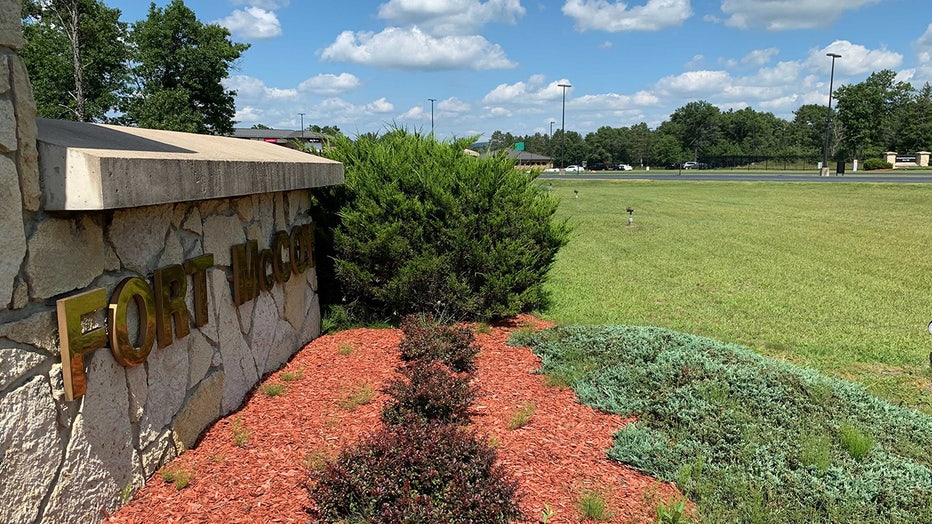
Fort McCoy, Wisconsin
"We had an individual involved with the Special Forces reach out to our office," said Steil. "He’s aware of 40 individuals currently trapped in Kabul with sensitive information. We’ve been working with the State Department, the Department of Defense, to provide that information to allow them to extract these individuals from a very dangerous situation. The fact that individuals are left to call members of Congress seeking assistance speaks volumes about the crisis we’re seeing play out right now in Afghanistan."
President Joe Biden has promised to get them out, though he admitted to not knowing the exact number because some may have already left.
"We’re going to do everything, everything that we can to provide safe evacuation for our Afghan allies, partners and Afghans who might be targeted because of their association with the United States," said President Biden. "But let me be clear: any American who wants to come home, we will get you home."
President Biden did admit to not knowing the exact numbers of Americans still in Afghanistan because some may have already left the country.
From: https://www.fox6now.com/news/wisconsin-afghan-refugees-tested-for-covid-vaccine-not-required
Wisconsin tribes offer $500 vaccination incentive
 |
| Photo by: Mary OConnell |
ONEIDA, Wis. (AP) — Some American Indian tribes in Wisconsin will put cash in the pockets of its members and employees to get a coronavirus vaccination.
The Oneida, Menominee and Ho-Chunk tribes are offering a $500 incentive for vaccinations. That includes those who have already been inoculated. For the Menominee Nation, members age 12 and older as well as tribal employees who are fully vaccinated on or before Oct. 31 are eligible to receive the incentive.
Oneida tribal members and employees have until Sept. 30 to show proof of their vaccination to receive the $500. Ho-Chunk Nation members have until Nov. 1.
From: https://www.tmj4.com/news/coronavirus/wisconsin-tribes-offer-500-vaccination-incentive
Aaron Rodgers says he would have taken 'Jeopardy!' job
Aaron Rodgers, the quarterback of the Green Bay Packers, said he "definitely" would have taken the "Jeopardy!" hosting job if it was offered to him.
Rodgers made the comments while on the "Mad Dog Sports Radio Show."
"When you're such a super 'Jeopardy!' fan like I am, it's just so special to be on that stage and be in that environment," Rodgers said.
Rodgers was among the numerous celebrity guest hosts that filled in following the death of Alex Trebek.
Ultimately, the show named Mike Richards as the full-time host. However, he stepped down Friday after sexist comments he made in the past surfaced.
There is a new search for a host. It's unclear whether Rodgers will be considered.
From: https://www.tmj4.com/news/national/aaron-rodgers-says-he-would-have-taken-jeopardy-job
Friday, August 20, 2021
New Wisconsin data show far greater COVID protection for the vaccinated, but some waning in the face of the delta variant
MADISON - Vaccines dramatically lowered the threat of infection, hospitalization and death for Wisconsinites when confronted with the COVID-19 virus, new state data show.
People who were not fully vaccinated were nearly three times more likely to test positive for COVID-19 and nearly four times more likely to be hospitalized for COVID-19 related illness, according to data from July released Thursday by the Department of Health Services.
Those who were not fully vaccinated were about 11 times more likely to die of COVID-19 than vaccinated residents.
The data also show infections climbing among fully vaccinated Wisconsinites due to the delta variant, according to state officials.
Thursday's release provides the first look into how COVID-19 vaccines are working in Wisconsin. The data show while becoming vaccinated does not eliminate the risk of becoming infected and experiencing serious illness, it significantly reduces the threat of becoming hospitalized or dying.
The data also show the new, more transmissible delta variant of the virus is causing more infections among fully vaccinated residents — with the rate doubling since February.
"That really is due to the fact that delta is now the predominantly circulating virus," Traci DeSalvo, director of the DHS Bureau of Communicable Diseases, told reporters on Thursday.
"We are seeing more cases among people who are vaccinated — fully vaccinated with delta compared to previous circulating strains of COVID-19," she said. "With that being said, what's also important to look at here is that we are still seeing much lower rates of cases, much lower rates of hospitalizations and much lower rates of deaths among those who are fully vaccinated here."
The rate of infections per 100,000 fully vaccinated people has climbed from about 57 in February to 125 in July, according to the new data.
Unvaccinated people were 4.5 times more likely to test positive for COVID in July than in June and vaccinated people were 8.7 times more likely to test positive in the same time period.
Concerns over vaccines' protection against the delta variant also prompted the Biden administration to offer booster shots of vaccine starting Sept. 20.
But overall, the risk to Wisconsin residents who are not vaccinated remains much higher than to those who are fully vaccinated. Over the last six months, people who were not fully vaccinated were on average six times as likely to become infected with COVID-19 and 4.5 times more likely to become hospitalized, according to the data.
Whether to get a COVID-19 vaccine has divided the state — literally. About half of the state's population that is eligible to get vaccinated has completed their series of shots. The rate has barely budged for months.
State officials have tried social media campaigns and offers of free State Fair food to boost vaccination rates in an effort to provide more protection against a new variant of COVID-19 that is much more transmissible and is spreading fast through the state.
The data is being released amid this effort and just a few weeks before schools are set to reopen, where clusters of children who are too young to get vaccinated will gather amid a surge of new cases.
The coming weeks worry public health officials given the state's lagging vaccination rate and a significant contingent of people and parents opposed to wearing face masks.
Wisconsin's seven-day average of new COVID-19 cases is more than 1,200 — the highest rate since early February before vaccines were widely available and 20 times higher than the state's average six weeks ago.
Matthew Piper of the USA TODAY NETWORK-Wisconsin contributed to this report.
Contact Molly Beck at molly.beck@jrn.com. Follow her on Twitter at @MollyBeck.
Racine COVID vaccine incentive program begins
RACINE, Wis. - City of Racine health officials say roughly 40% of those eligible have been vaccinated against the coronavirus.
For the rest, Wednesday, Aug. 18 was the first day of a new program to reward Racine residents who get the shot.
"We still have 60% of the eligible population in the city of Racine that are unvaccinated for COVID-19," said Dottie-Kay Bowersox, Racine public health administrator.
For Racine, the coronavirus is a major problem.
"If I take a look at the numbers here in the city of Racine, we’re very close to the numbers that we were last year at the same time. After Labor Day is when our numbers started to increase," Bowersox said.
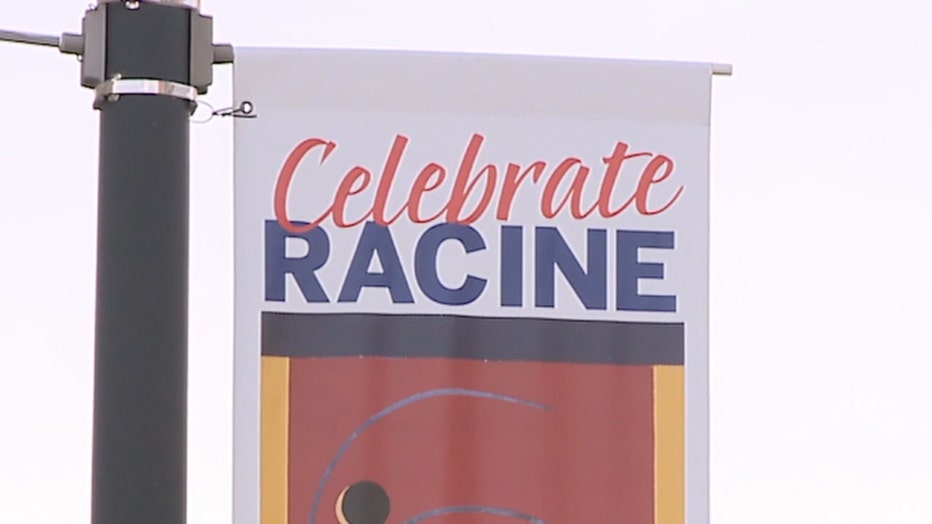
Trying to combat the rise in cases, city leaders have followed suit in what is becoming a popular approach to encourage vaccinations.
"It’s a $50 gift card that city residents will get for each shot. So if it’s a two-shot vaccination you’ll get $50 for each shot, so $100 total if you’re fully vaccinated," Racine Mayor Cory Mason said.
The money is coming from federal pandemic relief funds.
"We have a variety of options that people can use. Whether it’s a gas card, a grocery card or a big box store card," said Mason. "People will have their options of which gift card they want, but it does create a number of options for people."
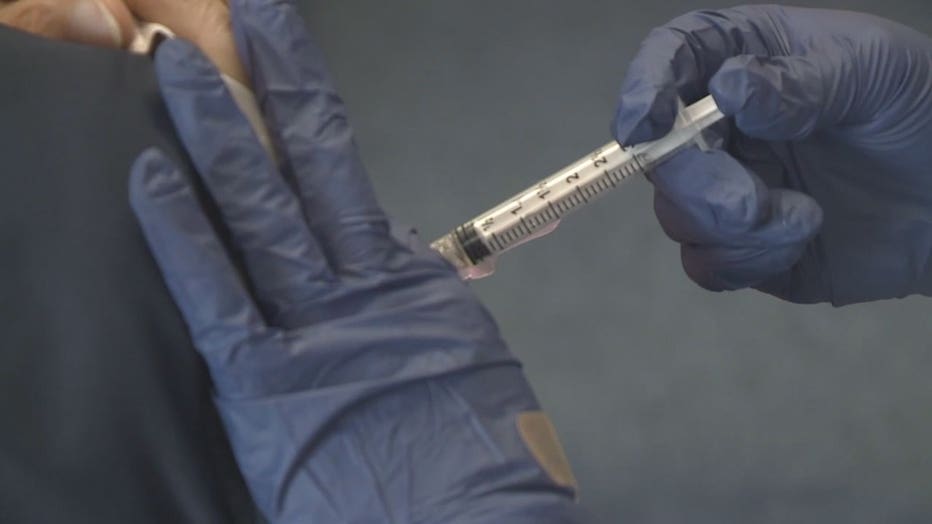
For those who are already vaccinated, there is a chance to cash in, too.
"If you’ve already been vaccinated and want to know how you can participate in our incentive program; if you bring a friend or a family member who is a city resident to get vaccinated you will also get the $50 gift card incentives," Mason said.
How to get incentive
Racine's gift card incentive program is available at the following clinic sites:
- Racine Public Health Department’s vaccine clinic at City Hall; appointments can be made online atracinepublichealth.as.me/schedule.php; walk-ins are allowed every Thursday from 10 a.m. – 2 p.m.
- AMI Health vaccine clinic at Regency Mall; walk-in hours on Tuesdays from 11 a.m. – 7 p.m. and Thursdays from 11 a.m. – 5 p.m.
- City or AMI Health’s supported pop-up clinics throughout the community; a list of those pop-up clinics can be found at vaccinateracine.org
City residents looking to get vaccinated and Good Neighbors will need to verify their addresses with clinic support staff and fill out an entry form to receive the gift card incentive. Should a clinic run out of gift card stock, the entry forms will be used to contact and deliver gift cards at a later date.
The gift card incentive program goes into effect on Aug. 18, and will be in place as long as gifts cards are available.
For more information about the location of eligible clinics and the gift card incentive program visit vaccinateracine.org.
From: https://www.fox6now.com/news/racine-covid-vaccine-incentives
Once again, Racine rewards bad behavior. As long as this type of thinking predominates, Racine will remain a toilet.
SE Wisconsin law enforcement responds to call to defund police
'Hold us accountable, and we'll find the ones that need to be weeded out in organizations,' Milwaukee County Sheriff Earnell Lucas says
FRANKLIN, Wis. —
Law enforcement leaders from across southeast Wisconsin responded Thursday to calls to defund police.
Officers talked about the challenges and criticism they're facing at a round table organized by Republican U.S. Rep. Bryan Steil at the Franklin Police Department.
"It's imperative that we have communities that are safe. We've seen some challenging times over the last year. We've seen, I think, a very vocal minority of people engaged in anti-police rhetoric," Steil said.
Steil criticized calls to defund police and organized a law enforcement round table to hear from southeast Wisconsin law enforcement leaders.
Milwaukee County Sheriff Earnell Lucas said law enforcement can't run from its past and has made critical mistakes, but that's not all.
"Each day, men and women put on a badge and uniform and went out and served communities all across America, and did it to the best of their ability," Lucas said.
The sheriff said law enforcement is moving forward with sensitivity and cultural bias awareness training.
"Hold us accountable, and we'll find the ones that need to be weeded out in organizations," Lucas said.
Racine County Sheriff Christopher Schmaling delivered a message to news media.
"When law enforcement does good things, and we save lives daily, give that just as much of attention to our community as you would when we're responsible for ending someone's life," he said.
The eyes of the nation turned to Kenosha in August 2020 when police shot and permanently disabled Jacob Blake, leading to fiery protests and two more people being killed.
"After all this stuff that happened, I guess, even though we thought we were doing a good job. Obviously, we can do a better job. And that's the goal is to continue to try to increase the relationships we have with the citizens we serve," Kenosha police Detective Pete Deates said.
Milwaukee community activist Angela Lang lobbies for some tax dollars to be taken from traditional policing and invested in mental health treatment and other creative efforts to reduce crime.
"At the end of the day, everyone wants to be safe. And we want to make sure that safety doesn't always mean adding more police officers, and we can reimagine what that safety is," Lang said.
Police say they're struggling more with recruiting new officers and keeping officers because of the criticism law enforcement is facing.







